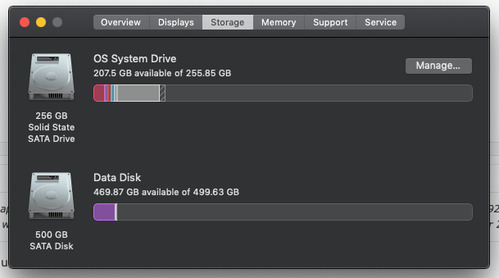i had power all day today. it must be Christmas.
Navigation
Install the app
How to install the app on iOS
Follow along with the video below to see how to install our site as a web app on your home screen.

Note: this_feature_currently_requires_accessing_site_using_safari
More options
You are using an out of date browser. It may not display this or other websites correctly.
You should upgrade or use an alternative browser.
You should upgrade or use an alternative browser.
Things to do during loadshedding
- Thread starter Jean claude Vaaldamme
- Start date
What batteries are u getting ? From what I read, power storage is the most expensive.I am going ''solo'' asap ,totally gatvol of citipower and Eskom , rep from Voltex will come and see me next week .Est R92000 for 18 panels and all the bells and whistles .Got gas stove already , looking at a gas/electric fridge and freezer and inverter generator 2.5 to 5kw.
Which SSD did u get ? Is it sata or m2.Did a clean OS install over the network overnight. This performance is beyond anything I was expecting. Cold boot to signed in and working about six seconds. Browsing at the speed of light. Damn!
Now I will stop derailing the thread.
When not doing this, during load shedding, I braai...
Regards
If you go solar its not that simple or lets say a once off cost. Batteries and solat panles do not last foreer and will be an constant expence. And that is also the most expensive parts of a solar system. So your electricity saving will most likely never exceed your hardware costs.
If you really need tv, computers running while power is off, just get enough batteries for your needs, plus good charger and inverter, then charge while there is power and use battery when not
If you really need tv, computers running while power is off, just get enough batteries for your needs, plus good charger and inverter, then charge while there is power and use battery when not
The guy from Voltex [Google them] will come and explain everything somewhere in the week - will keep you posted.What batteries are u getting ? From what I read, power storage is the most expensive.
Battery life is estimated at about 4.5 to 5 years.If you go solar its not that simple or lets say a once off cost. Batteries and solat panles do not last foreer and will be an constant expence. And that is also the most expensive parts of a solar system. So your electricity saving will most likely never exceed your hardware costs.
If you really need tv, computers running while power is off, just get enough batteries for your needs, plus good charger and inverter, then charge while there is power and use battery when not
By whom? The guy that sells it? Hehe Im no expert, but know a few guys/clients, that on average had to replace 2-3 yearsBattery life is estimated at about 4.5 to 5 years.
Pfffft I thought it was a selfie in the dark lol
I recon the load shedding and general dismal state of all SOC’s are the direct result of CABLE theft.
Complete Absence of Business Logic and Ethics.
Regards
Complete Absence of Business Logic and Ethics.
Regards
I recon the load shedding and general dismal state of all SOC’s are the direct result of CABLE theft.
Complete Absence of Business Logic and Ethics.
Regards
I blame it all on then been useless and lacking any sort of brain, stupid cANCer gauvament
Sent from my iPhone using Tapatalk
To be politically correct, it's guavamintI blame it all on then been useless and lacking any sort of brain, stupid cANCer gauvament
Sent from my iPhone using Tapatalk
finally, power is out at work. whoohoo!
To be politically correct, it's guavamint
I fume when this topic comes up so please forgive my errors
Sent from my iPhone using Tapatalk
Strangely my lil town doesn't have load shedding going on at the moment
depends on the type of batteries. Li ion cells have around 5000 cycles, which could be around 5 years, and the others, lead acid and NiCd have less cycles I think about 2000. That's why there can be discrepancies before they require replacement. However, there is power storage for times when power is off, means just additional investment to alleviate the risk of no power when you need it.By whom? The guy that sells it? Hehe Im no expert, but know a few guys/clients, that on average had to replace 2-3 years
Renewable power can be used to offset costs when you can generate AND store your own power, relying less on the grid. Upfront cost can be high, though can pay themselves off over the long term. Like initially if you replace the power you need for your geyser only at first with solar, you'll save and cover the costs over time, and slowly upgrade your system when funds become available to expand to the rest of your home.
Electrical installations need to be safe, and I cannot emphasize on this, as DIY connections may work, but if you don't know what you're doing, you can cause a lot of damage, electricity is unforgiving.
Edit: spelling/grammar thanks @lesvaches
Last edited:
a small town in KZN, Newcastle had ripple switches installed on their geysers at each consumer, which when the municipality is requested to reduce load, they switch off all the geysers remotely, and thus have no further load shed form them. Its a little foresight they had, which saw resistance for the installation initially, but they're reaping the benefits now. No load shedding as we know for them.
electricity is unforgiving.depends on the type of batteries. Li ion cells have around 5000 cycles, which could be around 5 years, and the others, lead acid and NiCd have less cycles I think about 2000. That's why there can be discrepancies before they require replacement. However, there is power storage for times when power is off, means just additional investment to alleviate the risk of no power when you need it.
Renewable power can be used to offset costs when you can generate AND store your own power, relying less on the grid. Upfront cost can be high, though can pay themselves off over the long term. Like initially if you replace the power you need for your geyser only at first with solar, you'll save and cover the costs over time, and slowly upgrade your system when funds become available to expand to the rest of your home.
Electrical installations need to be safe, and I cannot emphasize on this, as DIY connections may work, but if you don't know what you're doing, you can cause a lot of damage, electricity is unforgiveable.
I use my power banks to charge my vape batteries with the Golisi charger 
And I always make sure that all the mods have 50% plus battery life before I go to bed at night. Those with less power gets fresh batteries and the others go on charge.
For food I braai or go to my local pub. Pub always has power. Owner installed generator year or two ago
And I always make sure that all the mods have 50% plus battery life before I go to bed at night. Those with less power gets fresh batteries and the others go on charge.
For food I braai or go to my local pub. Pub always has power. Owner installed generator year or two ago
We also got ripple switches, the biggest problem was that they “forgot” to switch them back on when it was no longer needed. A lot of times woke up to no hot water. Converted to solar, problem solved.a small town in KZN, Newcastle had ripple switches installed on their geysers at each consumer, which when the municipality is requested to reduce load, they switch off all the geysers remotely, and thus have no further load shed form them. Its a little foresight they had, which saw resistance for the installation initially, but they're reaping the benefits now. No load shedding as we know for them.
Scratch that now, I jinxed it. We are load shedding now.Strangely my lil town doesn't have load shedding going on at the moment
So going to make custom-design soap on the gas stove and have the dog entertain me.
I'm really enjoying this soap making hobby now.
Scratch that now, I jinxed it. We are load shedding now.
So going to make custom-design soap on the gas stove and have the dog entertain me.
I'm really enjoying this soap making hobby now.
Welcome to the dark side,
I dont mind during the day, its the nights that kills me, this week i have it from 8-10pm.
Similar threads
- Replies
- 3
- Views
- 1K





